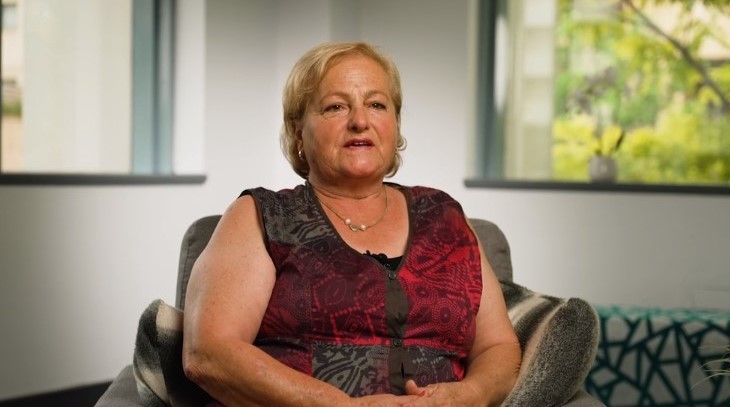In Australia there are over 2.65 million people who provide unpaid care to a loved one. From young people supporting a sibling, parent or family member, to older people supporting their grown up child or partner. Carers can be someone who support anyone with a disability, mental health or chronic health condition, or who are frail aged.
Often, many unidentified carers consider their support role as simply being part of the family circle. Different diversities, generational stigmas and cultural customs can also lend to people not reaching out for help, often leading to burn-out, and or mental and physical health challenges.
Tune in to Care, an innovative new podcast, hosted by SBS Radio broadcaster, Adrian Plitzco, and follows the real-life stories of five living experience carers and their carer journey. Each carer is on a unique and winding road, one that is often difficult for others to understand, however may help listeners uncover that they too, are in fact a carer.
The podcast takes a deep dive into the carers’ journey from when they first realise they were a carer, up to that pivotal moment when they realised they could access free help and engage with peers of similar experiences.
Wellways Carer Gateway’s very own special guest, Georgie Sawyer, experienced Peer Facilitator and Coach also provides valuable insight, and breaks down the many ways Wellways Carer Gateway supports carers and what these services look like. Listeners may feel some comfort by resonating with the stories, or at the very least, validated in knowing there are other carers out there on a similar journey.
Hear the compelling stories of real, living experience carers:
- Mary has been a carer for almost 30 years, caring for her son, diagnosed with schizophrenia and bipolar disorder
- George cares for his 22-year-old son, who has been diagnosed with autism
- Maya is 13 years old, has two siblings, and cares for her father
- Luna cares for their son who has been diagnosed with autism and Attention Deficit Hyperactivity Disorder (ADHD)
- Lena is a mother to three children and cares for her father who has been diagnosed with Parkinson’s Disease.

Am I a carer?
In the first episode, Adrian asks each carer when they first identified with their role as an unpaid carer. Each carer’s response is different but all point to one common theme – that as it is their responsibility to care for their loved ones, the thought of being an unpaid carer did not enter their minds. “I’m his daughter. I always felt it’s my duty to take care of my dad.”, said Lena who carers for her father with Parkinson’s disease.
When these five individuals eventually realised they were unpaid carers they also came to the understanding that their lives were going to change, including Luna whose son was diagnosed with Attention Deficit Hyperactivity Disorder (ADHD) and autism. ‘I found that through the process of realising how much support he was going to need.” Luna says.
Some carers don’t want their caring role to take over their life, even though it often does. 13-year-old Maya has learned the importance of having just one person to talk to. ‘When I really want to talk about my feelings, I think it’s best to go to one person… not like a whole friend group.’
Some carers crave the company of friends and family. Mary, whose son was diagnosed with schizophrenia and bipolar, felt isolated because her son showed aggression towards her and others. ‘It’s just isolation. You can’t evolve with them [friends and family] because you can’t make them come… but you need friends in your life. I love my friends and I lost most of them,’ she says.
Guilt, shame, and stigma
Sometimes the ambition to provide the very best care for a loved one can lead to feelings of guilt. Luna doubted their ability as a carer. ‘Things were really difficult, and I was doubting myself as both a parent and a carer. I didn’t know whether I had the capacity to provide the care that he needed because I did feel so alone.’
Each of these five carers have greatly benefitted from connecting with Wellways Carer Gateway. Lena sees a counsellor, and a carer who speaks Mandarin visits her dad once a week. Mary receives respite for her son while she takes a break for a few days to recharge. George attends peer support meetings where he meets people in similar situations to himself. Maya has taken up art therapy to help her get to grips with her feelings, while Luna takes part in peer support groups, receives advice on organising daily activities, and has access to psychological counselling. The combination of all three services has helped Luna take control. ‘I feel like I can tackle things a lot easier. I can strategise and make a plan, and I’ve learned more about how I operate so I can actually put those plans in place,’ Luna says.
Free support is available
Wellways Carer Gateway supports carers from all different walks of life and in the way they want to be supported.
‘Just as every individual’s fingerprint is unique to them, so is their journey. Their caring journey is unique to them. And to be able to provide a pathway of support and to help empower a carer to better their personal situation, we have to treat it as such,’ Georgie says.
You can listen to the podcast Tune in to Care from your favourite audio streaming service or via our Tune in to Care podcast page.
If you are questioning whether you are a carer or not, make that first call to Wellways Carer Gateway on 1800 422 737. You will be greeted by a kind and understanding person, someone who wants to listen to you and your story and help find the free supports that best suit you.
